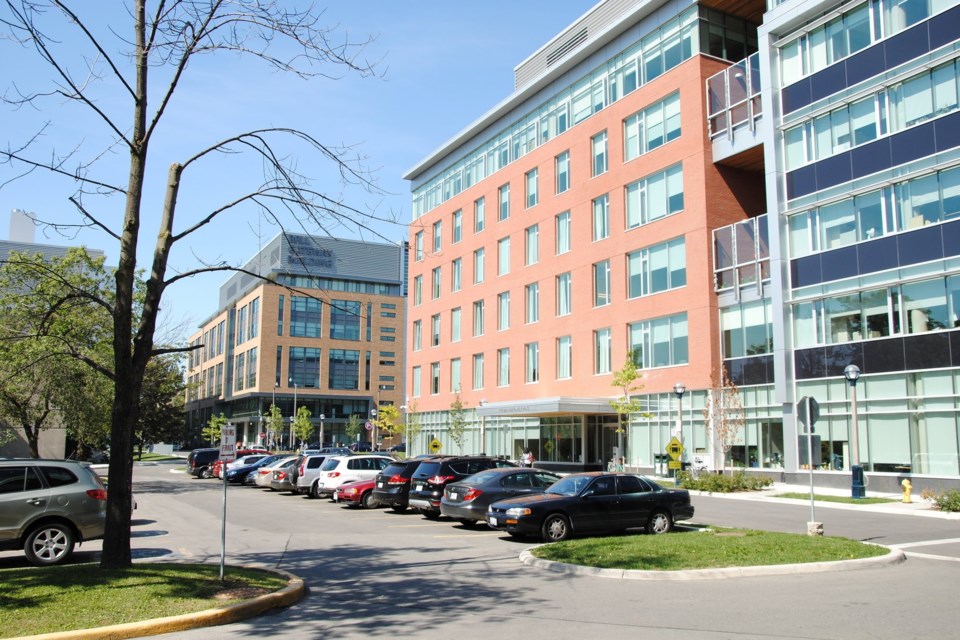They call today "the saddest day of the year" — and no, it's not because the Maple Leafs or Blue Jays have been eliminated from the playoffs.
The third Monday in January — which this year falls on Jan. 20 — is known by many as "Blue Monday."
While there may be no scientific basis for unusual levels of sadness some claim to experience on Blue Monday, the Centre for Addiction Mental Health (CAMH) said it's when many Torontonians start to really feel the winter doldrums, the winter blahs or seasonal affective disorder (SAD).
Though Blue Monday was first proposed as a marketing gimmick by a U.K. travel company, it later caught the public's imagination on an international scale.
According to CAMH, Blue Monday has grabbed the attention of Canadians because the sentiment of unusual sadness rings true. The association has even released a "Blue Monday Survival Guide" to help Canadians cope with the melancholy.
"Daylight is at a premium, nights are long and cold, holiday bills are arriving, and most of us are the furthest away we can be from the next thing to look forward to," CAMH said. "Those warm and fuzzy memories of the holidays – gone. The New Year's resolutions made with such earnest determination – broken."
According to CAMH, even just the talk of getting a bad case of the blues can have an impact on someone's mental health this time of year.
"This may seem like fun pseudoscience, but it can have a powerful influence on the psyche," CAMH psychologist Dr. Donna Ferguson said of discussing melancholy.
"It can become a self-fulfilling prophesy," she said. "If people feel they have already failed to live up to their resolutions, this self-imposed anxiety, coupled with the belief in Blue Monday, could be the perfect storm for triggering those predisposed to depression."
One way to cope is to take an inventory of your habits to see what changes you can make to improve your mental health, CAMH psychologist Dr. Katy Kamkar advised.

"Daily meaningful activities like getting proper sleep, maintaining a healthy diet, being physically active, setting up a budget to manage your spending habits, these are all practical, achievable goals that can make you feel more balanced," Kamkar said.
Dr. Robert Levitan, a senior scientist at CAMH who has studied the impact of daylight hours on mental health, said this time of year brings its own challenges for people prone to SAD, depression or other mental health issues.
"It's usually characterized by a lack of energy, fatigue, lack of concentration, weight gain," he said. "It's important to know that if you are feeling these symptoms, they can be treated in a variety of ways, including light therapy."
Toronto's Baycrest Health Sciences, a research and teaching hospital for the elderly, said about 20 per cent of older adults live with mental illness.
The hospital pointed to a 2020 study from the Public Health Agency of Canada that found 22 per cent of older adults screened positive for depression. Chronic isolation and loneliness can also increase the risk of developing dementia by about 50 per cent in older adults, Baycrest reported.
To put it in perspective, the hospital said the increased risk of death associated with social isolation and loneliness is comparable to smoking 15 cigarettes a day.
That's why medical professionals advise that older adults and their families seek out practical tips to combat loneliness, isolation and seasonal mood changes.
Support is available
Under the leadership of Dr. David Conn, a geriatric psychiatrist at Baycrest and an expert in aging adults’ mental health and late-life mood disorders, the Canadian Coalition for Seniors’ Mental Health developed the first-ever clinical guidelines for addressing social isolation and loneliness in older adults.
Toronto Public Health (TPH) encouraged people who need mental health support to seek out support and local resources in their area. The agency reminded Torontonians that "it's OK not to feel OK."
"The last few years have been difficult for all of us," TPH said on the city's website. "Many people may continue to feel sad, stressed, anxious, confused, scared or angry. These are normal and common responses to unexpected or stressful situations."
For people who are struggling with isolation, stress and anxiety, the city's partners provide free mental health supports to diverse communities across Toronto.
Not sure which of our mental health partners to contact? You can call 2-1-1 to be connected to the services that best meet your needs.
—
If you or someone you know is in crisis and needs help, resources are available. In case of an emergency, please call 911 for immediate help.
For a directory of support services in your area, visit the Canadian Association for Suicide Prevention. Learn more about how to help someone in crisis.



